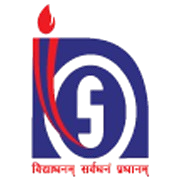
National Institute Of Open Schooling
- Affordable fee structure
- Government-recognized
- Wide course selection
- Study centers nationwide
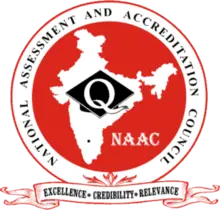
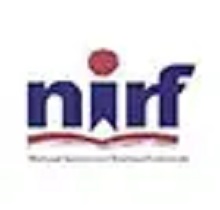
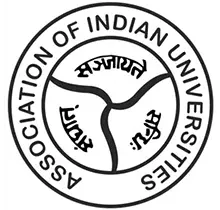
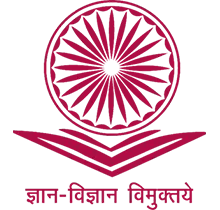
![]() Back
Back





NIOS is a "Open School" that serves a diverse student body up to the pre-degree level. In 1979, the Central Board of Secondary Education (CBSE) began it as a project with built-in flexibility.
The National Policy on Education recommended in 1986 that the Open School System be strengthened in order to gradually expand open learning resources at the secondary level nationwide as a stand-alone system with a distinct curriculum and certification-granting exams.
As a result, the National Open School (NOS) was established in November 1989 by the Ministry of Education (MOE), Government of India. NOS and the CBSE Open School pilot project were combined.
The National Open School (NOS) was granted the power to register, examine, and certify students enrolled in its pre-degree programs through a Resolution (No. F.5-24/90 Sch.3 dated 14 September 1990, published in the Gazette of India on 20 October 1990).
The Ministry of Education (MOE) changed the organization's name from National Open School (NOS) to National Institute of Open Schooling (NIOS) in July 2002.
The new name reflects the organization's goal of providing prioritized client groups with relevant continuing education at the school level, up to the pre-degree level, through the Open Learning system as an alternative to the formal system, in accordance with the normative national policy documents, in response to the needs assessments of the public, and through it to make its share of contribution : to increase social fairness and equity, to make education universal, and to a learning society's development.
The following courses and programs of study are offered by the National Institute of Open Schooling (NIOS) in open and distance learning (ODL) mode to interested students.
For adults, teenagers, and those over 14, the Open Basic Education (OBE) program offers A, B, and C levels, which correspond to classes III, V, and VIII in the official school system.
Course in Secondary Education
Course in Senior Secondary Education
Vocational Education Programs and Courses
Programs for Enhancing Life
Here’s the latest fee structure for NIOS Secondary (Class 10) and Senior Secondary (Class 12)
admission (Stream 1 public exam, fresh admission, 2025 session):
If you miss the regular admission window, late charges apply:
There are many authentic reviews from students who have studied in (National Institute of Open Schooling) NIOS and the success rate of the student is largely dependent on the will and enthusiasm of the students.
Apart from mentoring and guidance from the institute.
In contrast to other boards that use internal tests to buffer performance, NIOS places a high value on final exams and a select few assignments: Getting good grades in NIOS is difficult. Final exams and a few assignments are the mainstays of NIOS.
The long-term advantage is that most employers or institutions concentrate on your overall performance rather of whatever board you studied under, even though it requires self-discipline and early preparation: NIOS is a very adaptable system that helps working professionals, students who have dropped out, and others who require unconventional learning schedules.
All boards are welcome, there is no age restriction, and the program blends media-based learning, self-study, and tutoring.
It offers a blended, learner-friendly methodology through the use of printed study materials, audio/video courses, tutor-marked assignments (TMAs), personal contact programs (PCPs), and ICT-based resources.
For important national exams like JEE, NEET, NDA, IAS, CAT, CLAT, and others, NIOS is equally recognized:
Any national exam, such as the IAS, NDA, JEE, or NEET, can be taken with an NIOS class 12
certificate.
To concentrate solely on admission exams, a large number of students are enrolling in the National Institute of Open Schooling. Additional advantages include financial savings and freedom.
The eligibility of NIOS students for national entrance examinations was recently
reaffirmed by the Supreme Court.
With features like On-Demand tests, multimedia support, and recognition, NIOS provides a flexible and inclusive substitute for traditional education. It can be a very good option for students who value flexibility because of personal circumstances, self-paced learning, or preparation for entrance exams.
Nevertheless, maintaining discipline, picking a trustworthy study location, and constantly overseeing your educational path are essential for success.
What is NIOS?
The National Institute of Open Schooling, or NIOS, is an independent agency under the Indian government#39;s Ministry of Education. Through open and distance learning, it offers flexible learning opportunities for vocational, life enrichment, senior secondary (Class 12), and secondary (Class 10) programs.
Does the government recognize NIOS as a board?
Indeed. The Indian government recognizes NIOS as being on par with the CBSE and ICSE boards. Higher education, competitive exams (JEE, NEET, UPSC), and Government employment all accept NIOS certifications.
Who is eligible to enroll in NIOS?
Anyone who is a working professional, dropped out of school, wants to finish their education at any age (there is no enrollment age limit), or need flexible study in addition to other obligations.
Which courses are available at NIOS?
Class 10 Secondary Course; Class 12 Senior Secondary Course
• Open Basic Education
• Vocational Courses
• Programs for Life Enrichment and Skill Development
How can I apply to be admitted to NIOS?
Online admissions are available at nios.ac.in, the official NIOS website.
Actions to take: Register online, upload papers, pay the cost, and choose a study facility and subjects.
What is the cycle of admission?
Every year, NIOS offers two entrance blocks:
• Exams in April and May (Admission: April–September)
• Block 1
• Exams in October and November (Admission: October–March) in Block 2
How are NIOS tests administered?
• There are two examination periods per year: April–May and October–November.
• Exams are administered offline at approved locations; eligible students can also take the On- Demand Examination (ODE).
What are the NIOS passing requirements?
• A minimum of 33% in each topic (combined theory and practical)
• You need to pass at least five topics in order to be in Class 12.
Can I take the JEE, NEET, UPSC, or other competitive examinations using NIOS?
Indeed. All national-level competitive exams, including JEE, NEET, UPSC, NDA, CAT, and CLAT, as well as entrance to Indian and international universities, accept NIOS diplomas.
Does NIOS offer study guides?
Indeed, NIOS offers the following: • Printed study guides
• Video and audio instruction
• Internet-based materials
• Study centers' Personal Contact Program (PCP) classes
Can I switch subjects once I've been admitted?
Yes, you can switch topics within a certain amount of time and for a price.
Can I show up early for my exams?
Indeed. After fulfilling the minimal study requirements, qualified students can take tests at any
time of the year using the On-Demand Examination System (ODES).
What distinguishes NIOS from conventional boards like CBSE?
There is no distinction in recognition. The primary distinction is:
• CBSE/ICSE is regular schooling (classroom-based learning); NIO is open schooling (self- paced, flexible).
Can students from NIOS enroll in ordinary colleges?
Indeed. The following institutions accept NIOS certificates: Regular degree colleges Professional education government and private employment.
Is it better to prepare for JEE/NEET using NIOS?
Indeed. Many students use NIOS because
• It reduces academic strain in comparison to normal boards
• It offers flexibility in scheduling and
• It saves time preparing for competitive exams.
VidyaLive is adhere to the High academic standards and dedicated to provide quality education to students. Our educational programs are highly recognized and valuable for candidates.
The curriculum of our online programs are up to dated as per industry guidelines. It equips your skills and makes you a valuable asset for a modern and competitive industry.
Get admission to highly recognized online degrees via VidyaLive. We set an affordable fee structure to make education accessible and affordable for students.
Anybody who wants to get recognized degrees to enhance their career opportunities and growth can easily get admission to our online degrees.
By enroll in online courses, you can easily balance your personal and professional commitments. Our online courses do not disturb your current schedule and give you the flexibility to pursue studies at own convenience.
VidyaLive shapes your career by recommend you best universities for online degrees. Not only that, but we also provide you with dedicated placement services to boost your skill set.